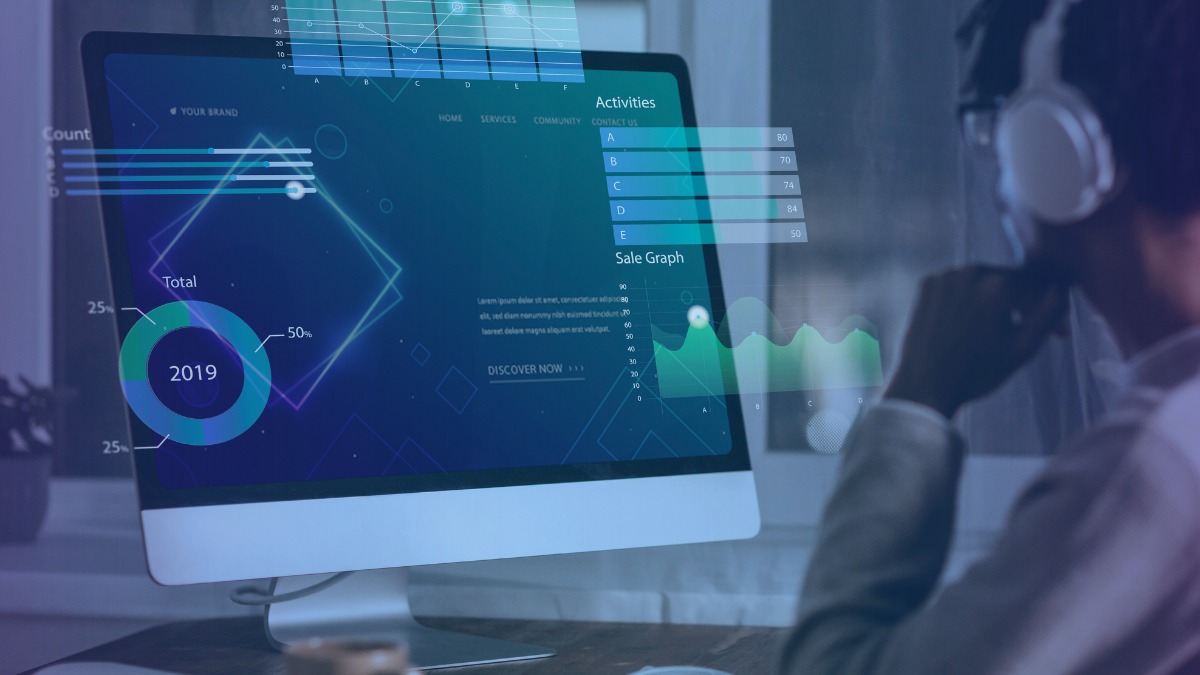
Personal Data Protection: Your Rights and Obligations
The Law of Georgia on Personal Data Protection establishes standards that must be observed by both private companies and state agencies when processing personal information.
Virtual assets are a growing and important part of the digital economy. Their popularity is rapidly increasing globally and in Georgia as well. Effective regulation of virtual assets is essential to ensure secure digital transactions and strengthen consumer confidence. The legal framework in Georgia is particularly important for investors, companies, and service providers who are actively involved in the virtual asset space.
Virtual assets represent digital values that exist exclusively in electronic format and have no physical equivalent. This broad category includes cryptocurrencies (decentralized digital currencies such as Bitcoin, Ethereum, and others), which function based on distributed ledger technology, mostly blockchain. The uses of virtual assets are diverse and include:
Payment methods: Paying for goods and services.
Investment instruments: Buying and selling assets for potential profit.
Digital ownership verification: Unique digital certificates confirming rights (in the case of NFTs).
Decentralized applications (DApps) and smart contracts: Execution of automated agreements on blockchain.
The rapid development and use of these innovative technologies requires an appropriate, flexible, and progressive legal framework that will protect users and market participants on one hand, and promote innovation development on the other.
The regulation of virtual assets in Georgia is a relatively new and dynamic process. The country has already taken concrete steps towards legal regulation of this field, although work is still ongoing for harmonization with international standards and best practices.
Virtual asset legislation in Georgia covers several key aspects:
Georgia has a mandatory registration regime for virtual asset service providers. This requirement aims to increase market transparency and prevent illegal activities. For registration, providers must submit specific information about their activities, owners, managing persons, and compliance procedures.
This is one of the important aspects of the regulatory framework for virtual assets. Georgian legislation requires Virtual Asset Service Providers (VASPs) to conduct proper customer due diligence (KYC), implement transaction monitoring systems, and report suspicious activities to the Financial Monitoring Service.
Operations related to virtual assets are subject to Georgian tax legislation. Profits derived from buying and selling virtual assets, as well as other income, are taxed in accordance with established rules.
The National Bank of Georgia actively monitors the development of the virtual asset market and registers Virtual Asset Service Providers (VASPs). Activities subject to registration include exchanging convertible virtual assets into national or foreign currency, into other virtual assets or financial instruments, their transfer, storage/administration, portfolio management (except collective management), administration of trading platforms, lending, and initial offerings/related services. Registration of VASPs is a necessary prerequisite for carrying out their activities legally. At this stage, the National Bank does not directly license the issuance of virtual assets, but through the registration of VASPs ensures supervision of entities operating in this field and compliance with established requirements.
Despite Georgia having taken significant steps towards regulating virtual assets, further development of the legal framework and full harmonization with international standards remains relevant.
In Georgia, Virtual Asset Service Providers (VASPs) are subject to both legislative and regulatory requirements, which form the basis for their legal and transparent functioning.
As mentioned, registration is mandatory for certain types of virtual asset service providers. The registration process involves submitting detailed information about the company, including details about founders, managing individuals (administrators), and beneficial owners; also, information about the types of activities to be carried out, organizational structure, websites, and applications used. Special attention is paid to internal compliance control procedures and policies developed to prevent money laundering and terrorist financing, as well as a detailed scheme of service implementation that reflects the flow of information, virtual assets, and funds. Additionally, it is necessary to submit a business plan that confirms the company’s financial stability and the existence of resources for carrying out activities.
Legislative and regulatory requirements for preventing money laundering and terrorist financing for virtual asset providers in Georgia include:
Virtual asset providers must ensure proper cybersecurity for their systems and user assets. This includes implementing security measures to protect against hacking attacks, fraud, and other cyber threats.
Virtual asset law in Georgia continues to develop, taking into account international trends and local specifics. Regulation of this field requires both understanding technological innovations and correctly applying legal principles.
In order for your business or investment in the virtual asset field to be successful, safe, and comply with current legal requirements, the assistance of professional lawyers is essential. MB Legal offers high-quality legal services in all aspects of virtual asset law.
Contact us today for a consultation and get comprehensive information about how our team can help you navigate safely and legally in the world of virtual assets.
Investors should pay attention to the following risks:
Investors are advised to conduct thorough research, understand the associated risks, and not invest more than they can afford to lose. Diversification is also an important strategy to reduce risks.
Our law firm offers comprehensive legal services in the direction of virtual assets, which includes: compliance checks with regulations, legal assistance in registration procedures, assessment of legal threats, preparation and analysis of contracts, tax advice, and legal support for innovative projects. Our team combines both legal and technical knowledge in this field, which gives us an advantage to provide qualified and effective services to our clients.

Please get in touch for all inquiries!
At MB Legal, we believe everyone should have access to quality legal advice. That's why we offer potential clients free consultation with a lawyer. Free legal assistance allows you to discuss your legal issues with an experienced lawyer before we commit to full representation.

Georgia is emerging as a key jurisdiction for virtual asset regulation. MB Legal advises clients on compliance with the country’s evolving legal framework for cryptocurrencies, digital tokens, and related services.
Learn More

Banking law governs the legal aspects of financial institutions and their operations, including lending, deposits, and regulatory compliance. It ensures that banks and businesses operate within the legal framework set by Georgian authorities.
Learn More

Explore our services on Virtual Zone status and IT law in Georgia, designed to help your business navigate the legal landscape and maximize opportunities in this growing sector.
Learn More

Have a question or need expert advice on tax law in Georgia? Fill out the form below to get in touch with our team of experienced tax law professionals at MB Legal. We’re here to help your business stay compliant and thrive.
Learn More

Labor law is an important part of Georgia's legal system, providing a fair balance between the interests of employers and employees. Legislative changes in recent years have significantly improved mechanisms for protecting labor rights and brought Georgian legislation closer to international standards.
Learn More

A clear understanding of business and corporate law in Georgia is crucial for launching, managing, and growing a successful company. From choosing the right legal entity to ensuring strong corporate governance, aligning your operations with local legal requirements is essential.
Learn More

Trademark registration is the essential first step in protecting your corporate identity. Consulting a trademark attorney to ensure your registration is filed correctly and diligently monitored will help avoid costly mistakes and provide you with the strongest protection.
Learn More

The Georgian Law on Personal Data Protection is an important legal framework that protects the personal information of individuals and establishes rules for processors and organizations. Compliance with the law is not only a legal obligation but also good business practice that increases the reliability and reputation of the business. The MB Legal team is ready to help you ensure that your business and activities comply with the Law on Personal Data Protection.
Learn More

The Law of Georgia on Personal Data Protection establishes standards that must be observed by both private companies and state agencies when processing personal information.

MB Legal will be happy to provide legal advice on the right choice of the legal form of your company.